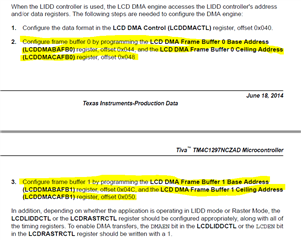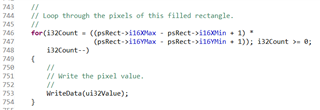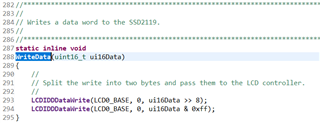i am using dk-tm4c129x msu with 8bit kentech display in that i want to use internal udma with this display.i am try with this display and grlib demo reference code but not success.
particular i want to use internal uDMA of display with dk tm4c129x msu.
so send me refreance uDMA code of that kentech dispaly
thank you.
-
Ask a related question
What is a related question?A related question is a question created from another question. When the related question is created, it will be automatically linked to the original question.




